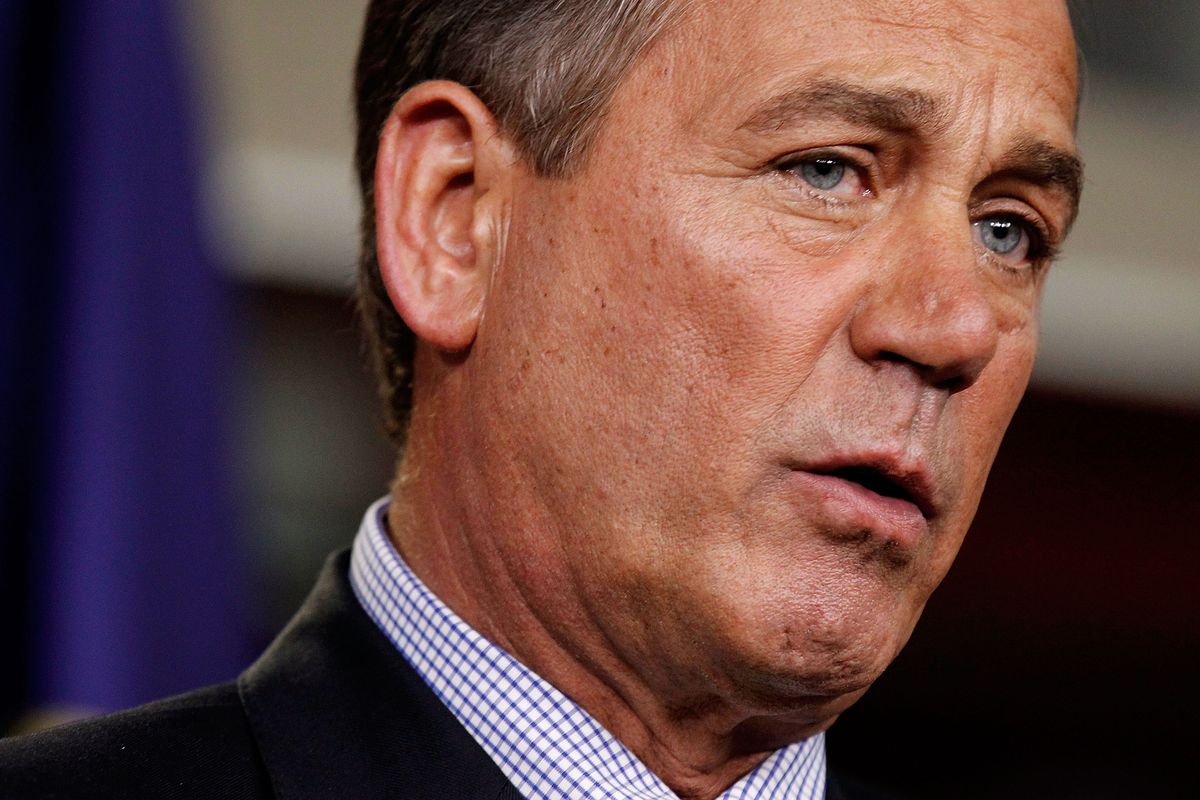Debt talks break down
Obama, Boehner both offer sharp criticism of efforts

WASHINGTON – House Speaker John Boehner abruptly broke off talks with President Barack Obama on Friday night on a deal to make major cuts in federal spending and avert a threatened government default, sending already uncertain compromise efforts into instant crisis.
Within minutes, an obviously peeved Obama virtually ordered congressional leaders to the White House this morning for fresh negotiations on raising the nation’s debt limit. “We’ve got to get it done. It is not an option not to do it,” he declared.
For the first time since talks began, he declined to offer assurances, when asked, that default would be avoided. Moments later, however, he said he was confident of that outcome.
At a rebuttal news conference of his own a short while later in the Capitol, Boehner said, “I want to be entirely clear: No one wants default on the full faith and credit of the United States government, and I’m convinced that we will not.”
The two men offered sharply different accounts of the compromise efforts so far and who was at fault for the collapse.
“I’ve been left at the altar now a couple of times,” Obama said wryly.
“It’s the president who walked away from his agreement,” Boehner contended.
The speaker said Obama wanted higher taxes and not enough spending cuts.
The president countered that he had offered an “extraordinarily fair deal” that totaled $2.6 trillion in spending cuts and $1.2 trillion in additional revenue.
Strikingly, the two sides had agreed on two highly controversial changes, according to aides on both sides of the talks. One would raise the age of eligibility of Medicare gradually from 65 to 67 for future beneficiaries, while the other would slow the increase in cost-of-living raises in Social Security checks.
Given that accord, it seemed likely those agreements would be among many carrying over to the broader meeting this morning and beyond.
Barring action by Congress by an Aug. 2 deadline, the Treasury will be unable to pay all its bills. Officials say a default could destabilize the already weakened U.S. economy and send major ripple effects across the globe.
In a letter circulated earlier to the House Republican rank and file, Boehner said he had withdrawn from the talks because the president wanted to raise taxes and was reluctant to agree to cuts in benefit programs.
The disconnect was “not because of different personalities but because of different visions for our country,” he said, and he announced he would now seek agreement with the Democrat-controlled Senate.
Obama was having none of that, announcing instead a morning White House meeting where he said he expected to hear proposed solutions from the top leaders of both parties in both houses.
“One of the questions the Republican Party is going to have to ask itself is, ‘Can they say yes to anything?’ ” Obama said.
Obama said his only requirement for an agreement was legislation that provides the Treasury enough borrowing authority to tide the government over through the 2012 election.
Senate Majority Leader Harry Reid, D-Nev., agreed in a written statement, saying a shorter-term extension was unacceptable.
His counterpart, Senate Republican leader Mitch McConnell, supported Boehner for “insisting on reducing spending and opposing the president’s call for higher taxes on American families and job creators.”
The developments occurred hours after the Senate had rejected a House-passed bill that would have raised the debt limit in exchange for spending cuts of an estimated $6 trillion and a vote in Congress to send a constitutional balanced budget amendment to the states for ratification.